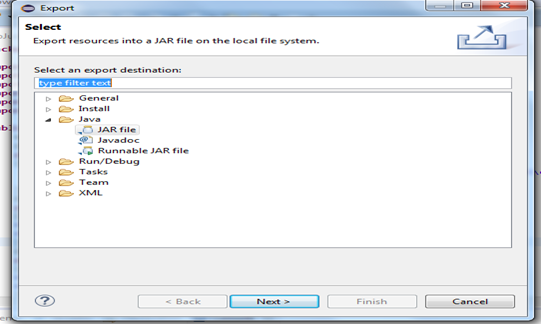

- #Test case apache jmeter how to#
- #Test case apache jmeter install#
- #Test case apache jmeter full#
- #Test case apache jmeter software#
- #Test case apache jmeter download#
The GUI mode should be used for test creation and test debugging. I save it to the /opt/apache-jmeter/bin/templates/ directory. Now you can save the test plan by clicking the File menu -> Save the Test Plan as. Right-click Thread Group -> Add -> Listener -> Backend Listener. Add a ListenerĪ listener in JMeter allows you to view test results and store the results to a file. You can create multiple HTTP requests if you want to, so each simulated user will request multiple web pages. Here you don’t need to specify the server address, because these values are already set in the HTTP Request Defaults elements. To make HTTP request to your website’s home page, set the path to /, so all simulated users will request the home page. Right-click Thread Group -> Add -> Sampler -> HTTP Request. Right-click Thread Group -> Add -> Config Elements -> HTTP Cookie Manager. If your website generate cookies for visitors, then you should add cookie support in the thread group. In the web server section, choose your website’s protocol (https), domain name, and port number (443). Right-click Thread Group -> Add -> Config Element -> HTTP Request Defaults. If you want to send requests non-stop, then select the Infinite checkbox. In this example, I want to simulate 15 users and each of them will send 10 requests.
#Test case apache jmeter download#
Then open a terminal window and go to the Download destination folder.
#Test case apache jmeter software#
Windows and macOS users can download JDK 11 from the Oracle website.Īlthough JMeter may be included in your Linux distribution’s software repository, for better test results, it’s recommended to download the latest stable version from the official Jmeter website.ĭownload the. Note that Java 16 isn’t compatible with Apache JMeter right now. To check your Java version, run java -version
#Test case apache jmeter install#
OpenSUSE sudo zypper install java-11-openjdk Validate server response with assertions.Īpache JMeter is 100% pure Java application, so we need to install Java runtime in order to use it.ĭebian/Ubuntu sudo apt install default-jre-headless default-jdk-headlessĬentOS/Alma Linux/Rocky Linux/Fedora sudo dnf install java-11-openjdk.Test plans are stored in XML format, which means you can generate a test plan using a text editor.It can conduct performance test, load test and stress test for many server types – HTTP, HTTPS, SOAP, database, LDAP, SMTP, IMAP, POP3, etc.Apache JMeter is a great complementary tool for testing your website performance under various load scenarios.
#Test case apache jmeter how to#
In a previous tutorial, we explained how to use Netdata to monitor the performance of Apache/Nginx web servers. Use JMeter to run the JMX test case and produce reports in the "reports/"directory in the workspace.Apache JMeter is an open-source load testing tool, available for Linux, macOS, and Windows.
#Test case apache jmeter full#
TestFilePath: tests/ outputReportsFolder: reports/ args: "-loglevel INFO -JMyProperty=Value -jmeterlogconf=log.conf " Full Example Usage name: Run All JMeter Tests In tests Folder uses: with: TestFilePath: tests/sample_test.jmx outputReportsFolder: reports/ args: "-loglevel INFO -JMyProperty=Value -jmeterlogconf=log.conf " # Use JMeter to run all tests in a folder # Modify the logging level and pass in some custom properties and config

name: Run JMeter Tests with modified logging and custom properties uses: with: # Modify the logging level and pass in some custom properties and config TestFilePath: tests/sample_test.jmx outputReportsFolder: reports/ # Use JMeter to run the JMX test case.

# Use JMeter to run the JMX test case and produce reports in the "reports/" # directory in the workspace.


 0 kommentar(er)
0 kommentar(er)
